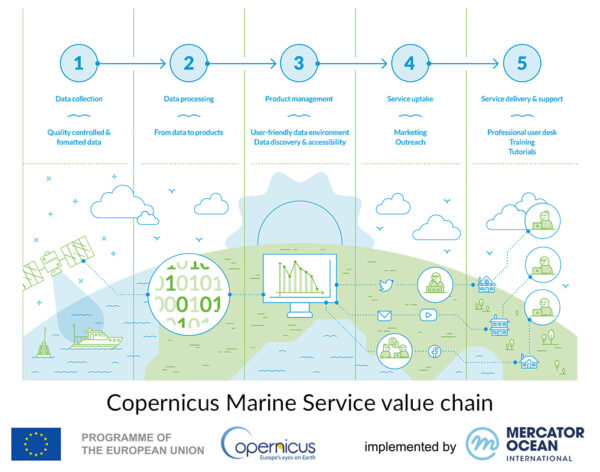The Copernicus Marine Service and Mercator Ocean International have just launched a new set of educational pages, with easy-to-understand information, infographics and definitions, presenting topics to unpack operational oceanography, the impacts of climate change on the ocean and the policies being put in place to protect the ocean.
Discover how ocean monitoring and forecasting systems work. From how ocean observations are collected (in situ and satellite), to how data is processed through modelling systems, and transformed into products, such as analysis (a snapshot of the state of the ocean at any given time), reanalysis (modelling the state of the ocean in the past, over a long period of time), forecasts and indicators. Find out about phenomena and serious threats facing our oceans (ocean acidification, warming, eutrophication, deoxygenation, plastic pollution, heat waves and more). Find out about European policies working to conserve the ocean and how monitoring and forecasting systems support and inform these policies.
Studying the ocean is becoming increasingly necessary to understand the ocean-climate nexus, the myriad of effects brought by climate change, pollution and other such threats. The more we know about our ocean, the better we can protect it and use its precious resources in a sustainable way.
To go to the Ocean Explainers accessible on the Copernicus Marine web portal, click here.





